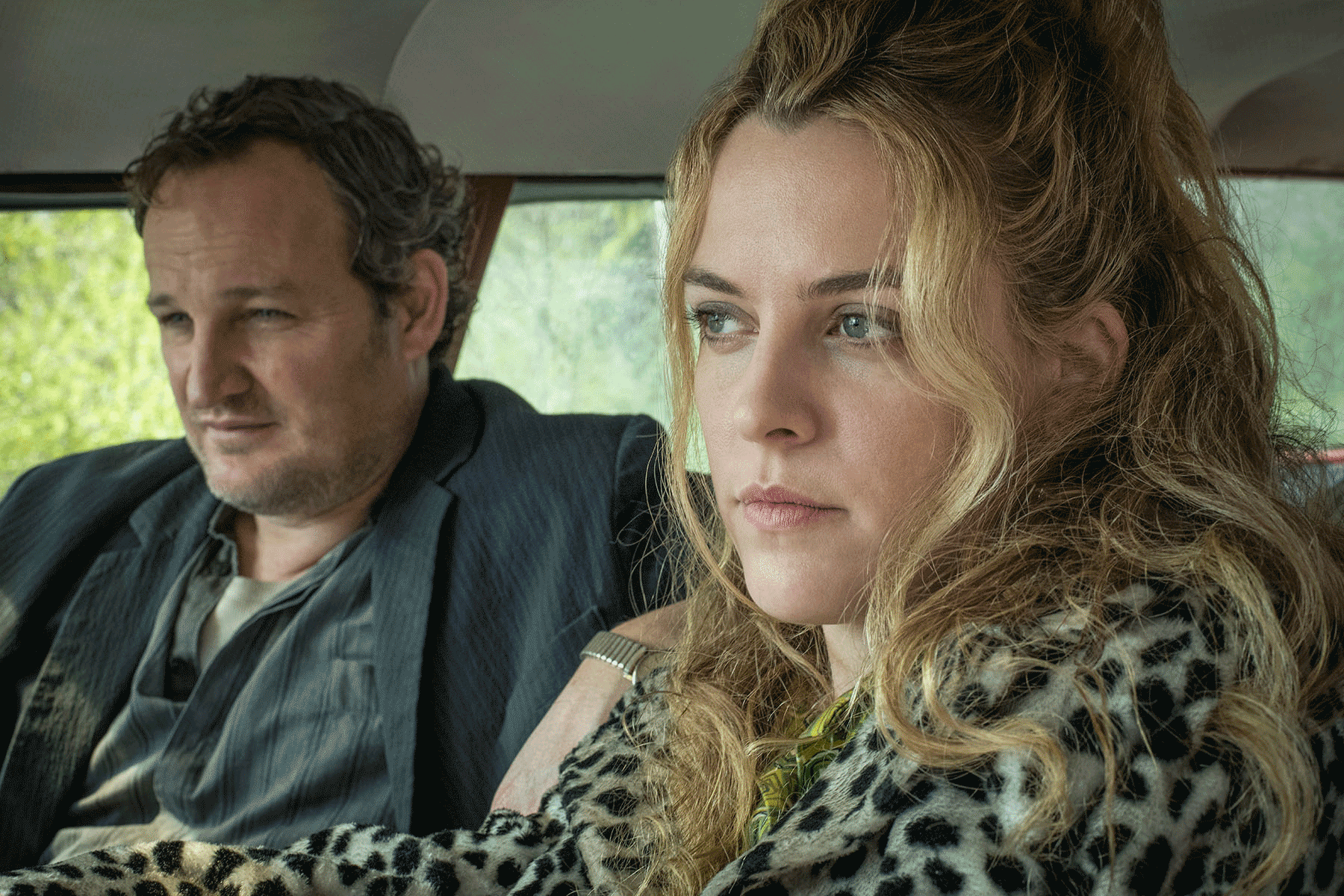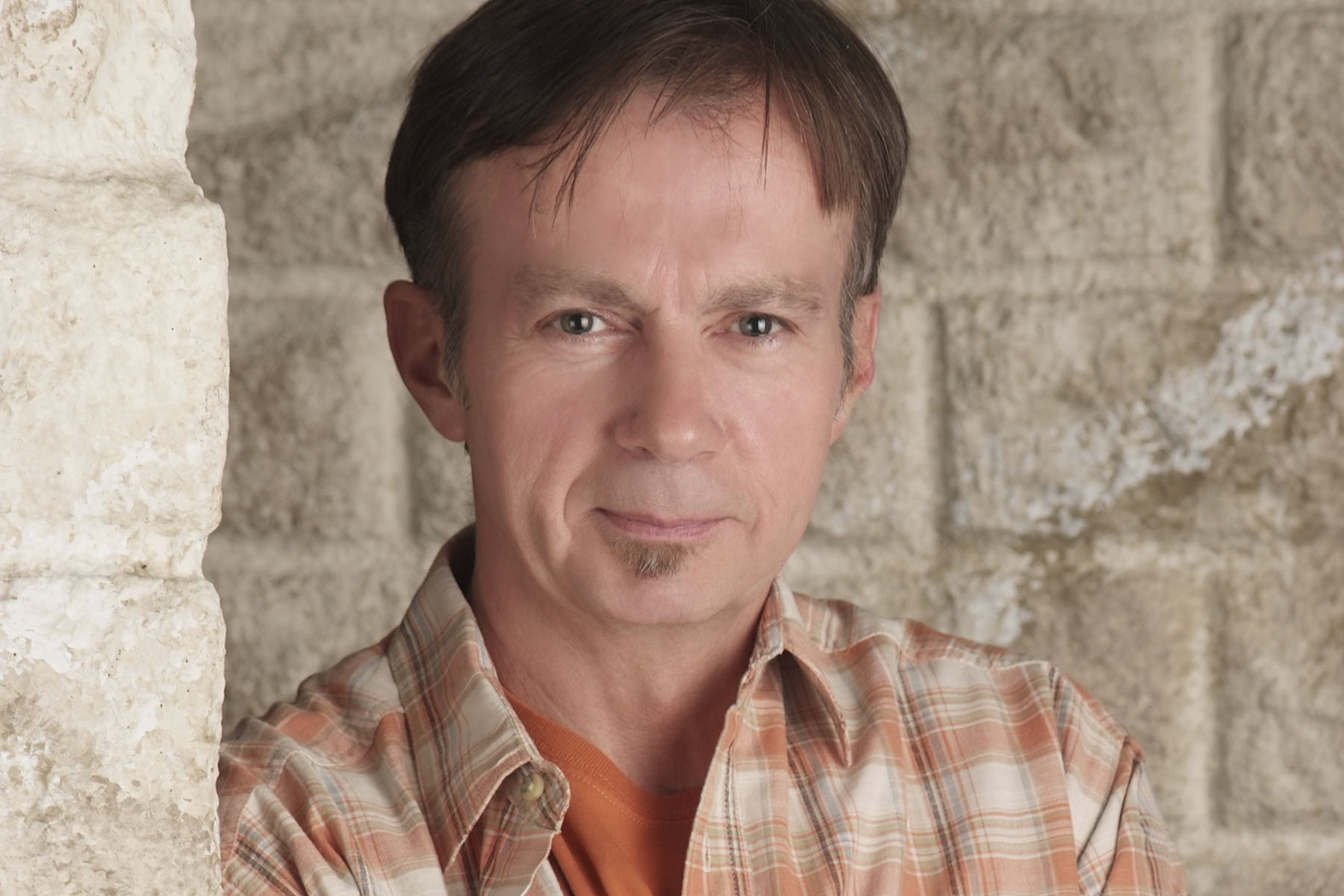- Home |
- Search Results |
- The Devil All The Time: author Donald Ray Pollock on the Netflix film

The opening lines of new Netflix crime thriller, The Devil All The Time, will be very familiar if you’ve read the Donald Ray Pollock novel it’s based on. “Four-hundred or so people lived in Knockemstiff in 1957,” a voice rich in Appalachian husk explains over images of bare trees and secluded wooden buildings, “nearly all of them connected by blood through one godforsaken calamity or another, be it lust or necessity or just plain ignorance.”
These are Pollock’s words, but Antonio Campos’s critically acclaimed adaptation of his book has allowed us to hear them in his voice for the first time. It’s the same voice that I hear down the phone when I call Pollock at home in Ross County, Ohio – where Netflix film is set, and where the author has lived his whole life.
Pollock’s compellingly human American noir novels have won reams of awards and earned him a Guggenheim Fellowship – an unexpected turn of events for a man who spent nearly 30 years working in the local paper mill before deciding, at 45, to take up writing. Those who encountered his first efforts were astonished with the raw talent on the page. Among the eviscerating stories of grinding poverty, domestic violence and twisted religious belief Pollock’s work manages to involve remarkable depth of character.
We spoke about his career change, how he writes and what it’s like to have a debut novel turned into a small-screen hit.

What’s it like to have your book turned into a Netflix film?
Well, as a writer my biggest hope is that it helps sell more books. Looking back, it’s probably going to be one of the top 10 experiences of my life. I’ve heard all the horror stories about books being adapted into films and all that but, you know, I didn’t experience any of that bad stuff, but Everybody’s been great, the guys who have made the movie, Netflix, the whole works, it’s been really good.
How did you end up doing the voiceover?
Since the book takes place over a 20-year period, Antonio wanted to have a narrator to guide people a little bit. There wasn’t a way of sticking everything from that book into the movie. I’d met him several times and he decided that he wanted me to be the narrator. At first I was a little hesitant about that. I told him: “Look man, you could get someone much better than me to do this”, but he wanted to have the author of the book doing the voiceover.
It makes a lot of sense, right? You’re from the area, it’s your story.
I guess so. I don’t really know how they figured it out but I was glad when it was over with, and I was glad I’d done it. It was probably going to be the closest I was going to come to being in a movie.
It must have been very strange to have characters that had been so well-defined in your head attached to Hollywood actors.
It was. Antonio would say, “Hey, I’m thinking about this one or that one for this part”, and I’d be like, “Well, okay, but that’s not the image of that character I’ve got in my head.” And so it was so amazing to me how these actors are able to take over those characters. For the most part they ended up making them more real than anything I had imagined when I was writing the book.
Where do your characters come from? Their backstories are so carefully examined in the book.
But I really can’t explain where this stuff comes from. I just work at it and eventually something will take hold or light up and I’ll go with it and then the more I get into it the better I can see the character or the seed or whatever. As far as the rural element of it, the hillbilly-type stuff, it’s echoes from where I live. I’ve been around these kind of people all my life and so I just write about what I know.
Because you came to writing quite late?
I got sober in 1986 and I started changing some things. I went to college part-time while still at the paper mill and I ended up with an English degree. When I was 45 I decided, having been at the paper mill for 27 years, that I wanted to try and do something else. I didn’t know how to anything other than factory work but I did have an English degree and I loved to read, so I thought, ok, I’ll try to learn how to write short stories. I was not thinking of quitting my job and all that stuff, I just wanted to try and have something else in my life, I guess. So I did that for five years and decided that this was what I wanted to do for the rest of my life. I was quite a bit older than most starting out.
'I’m not one of those people who think, "Oh I’ll go to the coffee shop and write for a couple of hours"'
Do you think that helped you to fuel the underlying humanity in your stories?
I think that age, and having a lot more experience under your belt, might help. Of course you can always look back and think, I wish I’d started this thing a lot earlier. But I don’t know if it would have worked out for me if I had.
Has the change in your career made a difference to how people perceive you locally?
Not really. I’m at home a lot, I don’t see a lot of people most of the time. I don’t talk about writing or anything like that just to be talking about it. All my friends, pretty much, are the same friends I’ve had for years. They might ask me something about it once in a while but it’s not a big deal. Really, you know, my life has definitely changed in terms of the days when I worked at the paper mill, but not drastically. I do have the choice of picking my own hours as far as work goes and how I want to live, I guess. But that’s about it.
What’s your writing practice like, do you keep to routines?
I’ve had a couple different ones over the years. When I was writing The Devil All The Time, and probably at least half of the next book, The Heavenly Table, I worked at night. I always felt a little more creative at night, I’m not sure why.
But I’m getting older and my wife goes to bed at a normal time, and so I switched those hours. Now I get up in the morning, up in my work room by 6 o’clock, or 6.30. And I try to work for at least five hours. I do it just about every day that way. For me, it’s got to be to a schedule or it doesn’t work for me. I’m not one of those people who think, ‘Oh, I might work this weekend, or I’ll go to the coffee shop and write for a couple of hours'. I’ve got to be completely alone, there’s no cell phones and no internet, and just do it that way.
Sounds very disciplined
I don’t think I’m a talented writer but I do have a little bit of discipline and that can go a long way if you just stick with it. It could be because I had to punch that clock at the paper mill all those years.